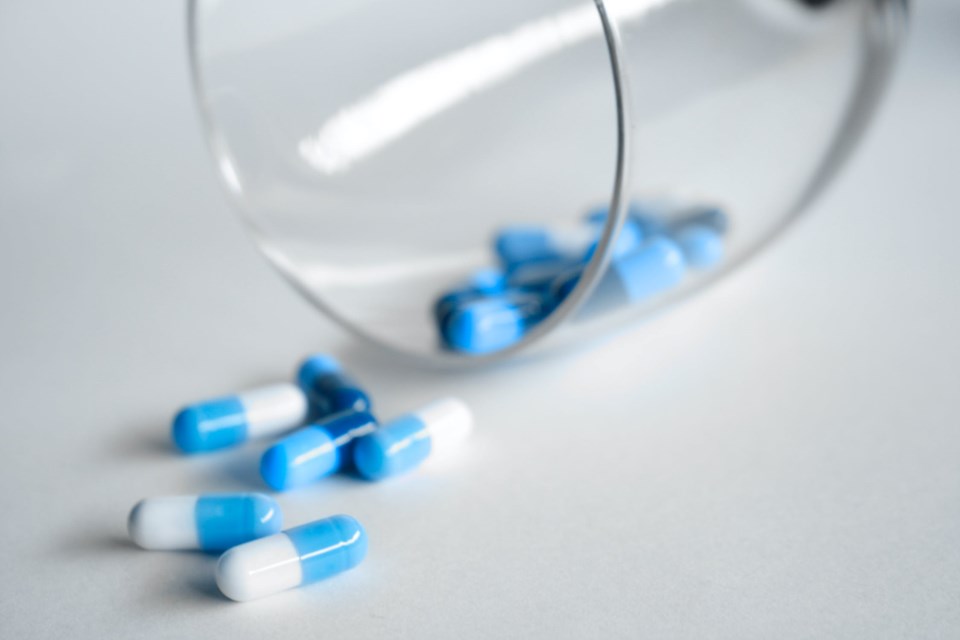Dear readers, this week’s question comes from June in Colborne. June wrote in asking if there’s any benefit to taking probiotics when taking antibiotics. She wondered if the antibiotics cancel out the benefit of the probiotics and it’s better to wait until after the antibiotics are done to start probiotic therapy. This is a great question and was hotly debated among nutrition experts for some time. New research suggests there is a clear answer and today we’ll explore it in depth.
Do I take them?
The verdict is in! There are clear benefits to taking probiotics during antibiotic therapy. First of all, they can help mitigate some of the nasty side effects of taking antibiotics. Have you ever experienced diarrhea upset stomach or yeast infections from antibiotic treatments? This is because antibiotics work by attacking bacteria, which reduces bacterial infections in the body. This is why we take them! And in some cases, this can be lifesaving. However, because antibiotics have a global effect they don’t discriminate against only bad bacteria. They can wipe out beneficial bacteria, as well. Think of them as a sort of nuclear bomb to bacteria. Any bacteria they encounter is wiped out. Our digestive system is lined with beneficial bacteria with very important roles in maintaining good health.
When we think of bacteria, we have been trained by the media the past two years to automatically arm ourselves with a bottle of Lysol or disinfectant wipes, but our immune system is actually developed and shaped by exposure to bacteria. From our journey through the birth canal to consuming food we grow in soil - we are inoculated by bacteria that both programs and strengthens our immune system. Bacteria are the most abundant life form on the planet. In fact, we are made up of about 10 times more bacteria than we are human cells. Most don’t hurt us and many are essential for our survival (source).
Beneficial bacteria enhance immunity, digestive function, and nervous system function. Studies out of Caltech show a surprising connection between the bacteria in our bodies and our brain health (source). Other researchers hypothesize a lot of inflammation actually starts with an imbalance of good bacteria in the gut (source).
We want a strong, diverse microbiome, teaming with good bacteria. Adding probiotics when we take antibiotics can help ensure that our beneficial bacteria are not wiped out from antibiotic use. They can lower the nasty symptoms associated with antibiotic therapies and can enhance our immunity to help overcome the infection at hand.
One large scale analysis of 63 studies revealed that subjects had 48 per cent less antibiotic-associated diarrhea after taking probiotics (source). Another study showed that taking a high dose of probiotics with antibiotics reduced the risk of diarrhea from the antibiotics by 46 per cent (source). Another study showed that treating H-pylori with a combo of probiotics and antibiotics can help reduce the gastrointestinal upset that usually occurs (source).
Another study showed that taking probiotics with antibiotics during in-hospital treatment reduced the incidence of drug-resistant-bacteria from 25 to 8.3 per cent (source).
In fact, it’s now recommended to recommend probiotic therapy when patients are taking two or more antibiotics to reduce the risk of developing Clostridium difficile infections (source).
How to take them
Since there are times when most of us need to use antibiotics for something, let’s look at how to best use probiotics during that time. It’s thought that taking them two hours before/after antibiotics is best, so they have an opportunity to make their way through the digestive system without being wiped out by the antibiotics. If you can’t remember, just take them when it’s convenient. You don’t need to take probiotics with a meal or with an empty stomach.
Which ones?
In the studies above Lactobacillus and Bifidobacteria, Lactobacillus, Bifidobacterium, and Saccharomyces boulardii were noted to be beneficial. Additionally, soil-based Bacillus species have been shown to be important. Some people don’t do well until soil-based probiotics are added in. But there is really no need to remember different strains. What this shows is that taking a broad strain probiotic with enteric coating and a high number of active bacteria at the time of manufacture can help ensure that you get the benefit. If you aren’t sure which ones are good, contact your nutritionist to get a recommendation.
What about fermented foods
At the same time, it’s highly beneficial to consume a serving of fermented food at least one time per day. These include kimchi, kombucha, fermented pickles, sauerkraut, miso paste, natto, fermented soy products, and fermented dairy products like kefir and yogurt. Just look for products that have not been pasteurized, as this kills the beneficial bacteria.
You can also make many of these products at home to enjoy the benefits for less.
Thank you, June, for the great question. I hope the information herein sticks for when it’s applicable to your family and you remember to reach for your probiotic when taking antibiotic therapies. As always, if readers have their own health questions, I welcome them. Just send me an email. If you’re looking for more specific health information check out my website.
Namaste!
Nonie Nutritionista
